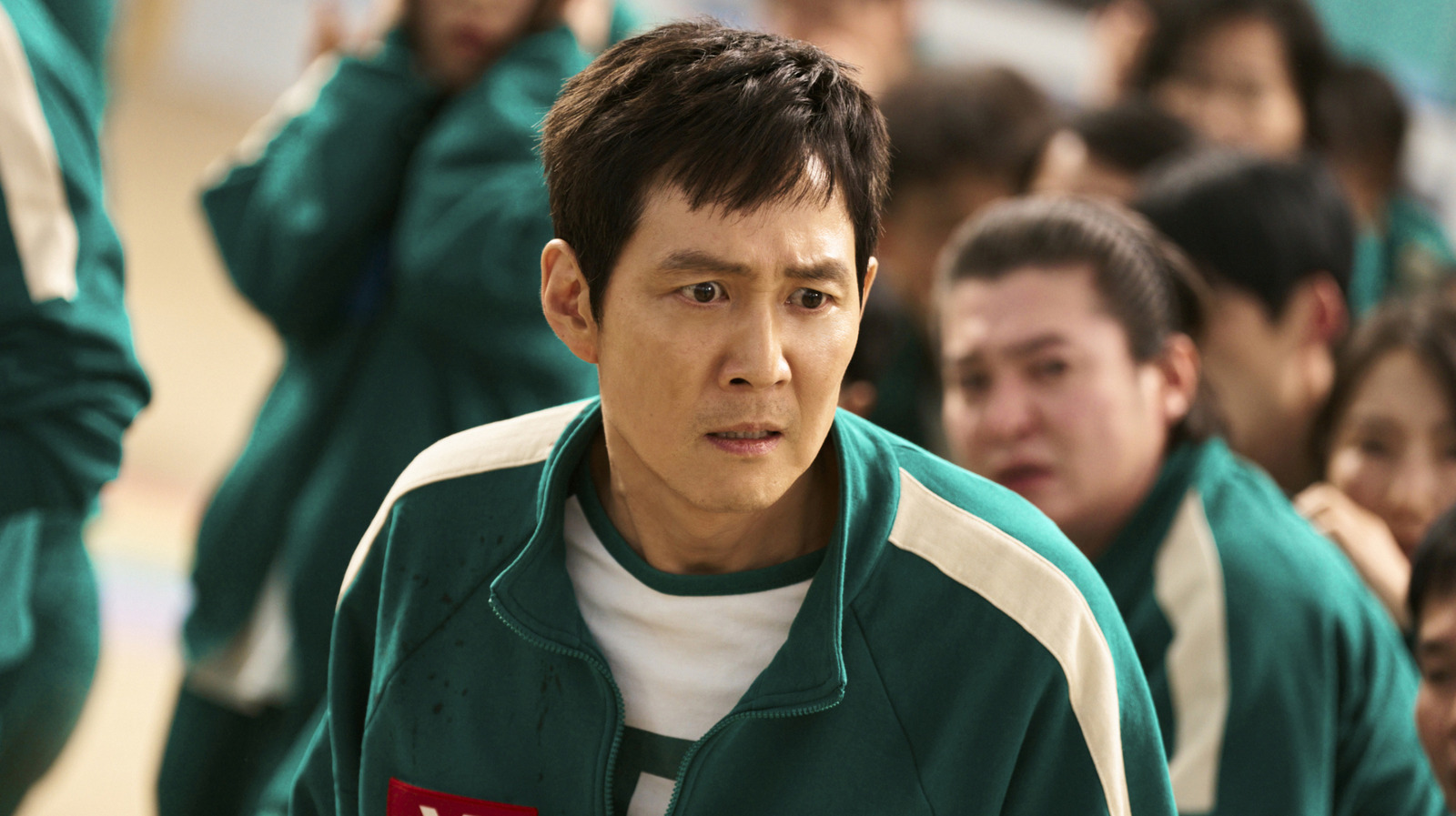
The series “Squid Game,” without a doubt, offers an exhilarating journey, and when its second season debuted on Netflix at the end of 2024, viewers enjoyed seeing Lee Jung-jae reprise his role as Seong Gi-hun, the winner from Season 1, now attempting to dismantle the organization from within. However, despite its intriguing twists and turns, the show has been criticized for some significant plot holes and inconsistencies among its dedicated fans. Even as we wait for Season 3 in 2025, these flaws remain a topic of discussion.
In the grim universe created by showrunner Hwang Dong-hyuk, tension runs high as characters like Gi-hun and his fellow players struggle to survive within the game, while outside the game, actor Wi Ha-joon’s character Hwang Jun-ho works tirelessly to identify the mysterious forces controlling the deadly competition and locate the hidden complex where it takes place. However, as the suspense builds, certain narrative inconsistencies and flaws arise, such as instances of blatant cheating, unusual hair dye, and the discovery of forbidden items within the game itself. These are merely some of the significant plot holes and challenges that can be found throughout both seasons of “Squid Game.
Player 001 could have died during the Tug of War game (Season 1)
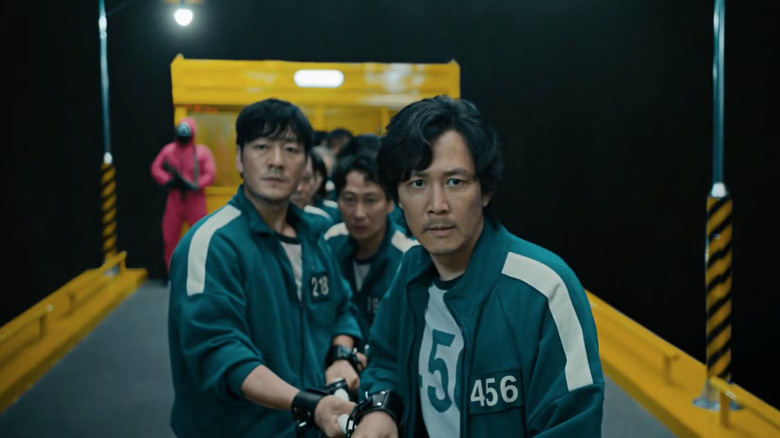
In the initial season of “Squid Game,” we tag along with Gi-hun as he delves into his inaugural participation in this intriguing competition. Throughout the series, he forms an alliance with Oh Il-nam, a senior player identified by the number 001. However, the shocking revelation at the end of the season finale is that Il-nam – who confides in Gi-hun that he’s participating due to his terminal illness and prefers to perish within the game rather than survive in the “real world” – is actually the mastermind behind the game. He devised it as amusement for individuals like himself, primarily wealthy people growing tired of their ordinary lives. The crux of the issue lies herein.
In one of the original seasons, Il-nam was in a perilous situation during the Tug of War game. This game was played on an extended walkway and if players didn’t pull hard enough, they risked falling into a dangerous abyss. Given that the outcome of this game was highly unpredictable, it seems questionable as to why Il-nam and others would willingly take such risks, especially considering his high chances of injury or death. Although we later learn about Il-nam’s terminal illness, it remains puzzling that he would participate in a game with such high stakes so soon after the Tug of War incident.
Il-nam helped Gi-hun win his game (Season 1)
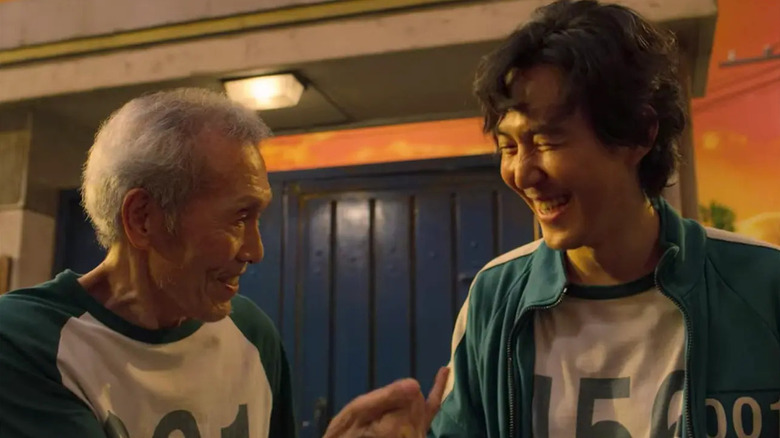
Following their victory in the Tug of War, Gi-hun’s group, including Il-nam, readies for the next contest, which unexpectedly is a game using marbles. Contestants must join forces and select any marble game they desire. It’s not immediately clear when teams form that they will be competing against each other, leading players to team up with friends at their own peril. Sadly, the loser in this game meets a grim fate as the guards execute them, forcing the victor to carry on with the competition.
In the marble game, Gi-hun shows compassion towards Il-nam when others refuse to partner with the elderly man. Throughout the game, it appears that Il-nam is experiencing memory problems similar to those seen in conditions like dementia. This confusion seems to work to Gi-hun’s advantage as he wins the game. However, although Il-nam isn’t killed by guards – he disappears off-screen and reveals the truth in the season finale – his decision to let Gi-hun win is perplexing. It raises questions: Did Il-nam manipulate the game at that moment, ensuring Gi-hun would triumph? Was he simply weary or intentionally unclear? This aspect remains somewhat mysterious.
Why is In-ho, a former player, the host of the whole thing? (Season 1)
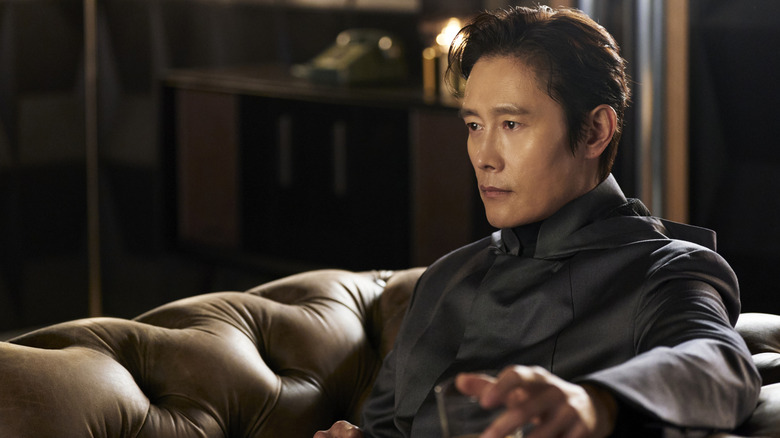
As a devoted fan, I was absolutely blown away by an unexpected twist at the end of the first season of “Squid Game.” This revelation centered around Jun-ho, who bravely infiltrated the vast complex where the game unfolds with the hope of finding his brother, whom he suspected had met a tragic fate during an earlier version of the competition.
Posing as one of the masked workers overseeing the games, Jun-ho stumbled upon a jaw-dropping truth: The enigmatic Front Man, who orchestrates every move within the game, was none other than his long-lost brother, Hwang In-ho (played brilliantly by Lee Byung-hun) — a brother who had actually won the game at one point!
In-ho attempted to rope Jun-ho, a detective, into their sinister operation, but when Jun-ho refused, In-ho gravely wounded his brother with a gunshot to the shoulder. It wasn’t until later in Season 2 that we discovered Jun-ho endured months in a coma as a result of those wounds.
As a devoted viewer, I can’t help but ponder about In-ho’s actions in the Squid Game series. It’s truly puzzling why a past victor of such brutal games would choose to orchestrate the entire event. This twist alone is mind-boggling, and it becomes even more perplexing in Season 2 when In-ho mirrors Il-nam’s actions, participating as Player 001. The show never provides a clear explanation for these events, which leaves everything feeling rather surreal and unbelievable.
Why aren’t loan sharks after Gi-hun when he doesn’t use the winnings to pay them back? (Season 1)
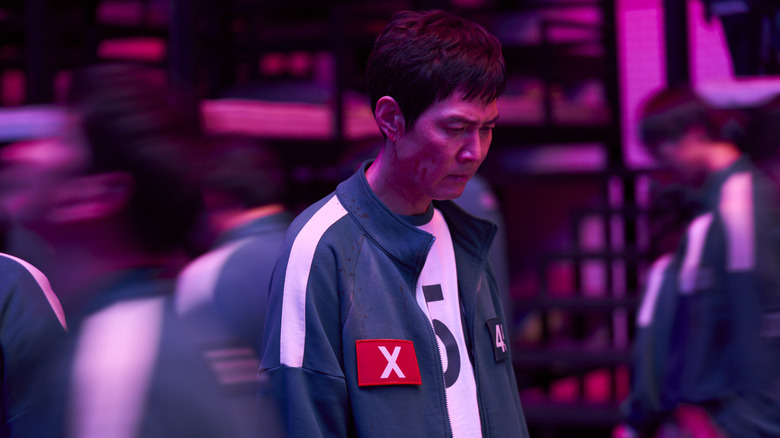
The primary motivation for Gi-hun to engage in the game during Season 1 was due to his overwhelming gambling debts, a situation that had him pursued by debt collectors and put his estranged wife and daughter at risk. To avoid this perilous scenario, he reluctantly agreed to participate in the questionable game offering a potential prize of approximately $30 million (South Korean currency) as an alternative. Notably, Gi-hun manages to win the game and secure his life along with the vast winnings, yet it becomes clear that he doesn’t put the prize money to good use.
Upon returning home, Gi-hun learns of his mother’s demise, plunging into a profound despair that leaves him indisposed to utilize his winnings. However, this raises a question: doesn’t he need to use the money to alleviate the threats posed by the menacing loan sharks who pursued him in the series debut? Yet, when he checks his bank account, it’s evident that he has barely touched the funds, leading one to wonder if the loan shark problem persists or if it miraculously vanished.
Why did Gi-hun ever have red hair? (Season 1)

At the conclusion of “Squid Game” Season 1, we see Gi-hun making his way to Seoul’s airport to catch a flight to Los Angeles with the intention of reconnecting with his daughter. However, he doesn’t actually board that plane. What may come as a shock in this final scene is Gi-hun’s transformed appearance. In the last minutes of the season finale “One Lucky Day,” Gi-hun receives a call from the Front Man who encourages him to travel to America, but instead, he remains in South Korea, promising to put an end to the games for good.
It’s all fine and well, but why on earth does Gi-hun have that fiery red hairdo? It seems like he dyed it without any particular reason, as there are no roots visible to suggest his natural dark brown color, yet in Season 2, his hair returns to its normal state. So, I’m curious, was this sudden change meant to symbolize Gi-hun’s mental state at the time, or was it just a whim to experiment with store-bought dyes? At this point, it’s likely we’ll never get an answer, but it’s such an odd detail that catches the eye.
How does nobody ever notice that hundreds of people go missing? (Seasons 1 & 2)
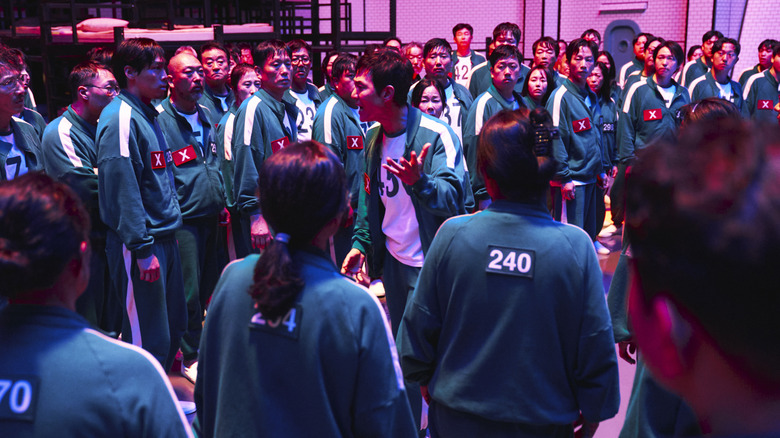
It’s mind-boggling to consider the organization behind the location where “Squid Game” unfolds, and we’ll delve into the compound shortly; however, one might wonder if South Korean law enforcement isn’t troubled by the recurring disappearance of around 400 individuals each year. One would assume that such a pattern would eventually raise concerns among the authorities, but aside from Jun-ho who has a personal stake in investigating the games, there appears to be no one else noticing anything amiss within society.
This situation strikes me as highly suspicious, and it’s hard to dismiss it by suggesting that participants in these risky games are only those who are deeply in debt or solitary. Given that roughly 500 individuals participate in each game, it’s likely that some of them have families or close relationships who might notice their absence! It seems plausible that the South Korean authorities should investigate this annual disappearance of fully-grown adults from society.
How has nobody found the island, and how does the detective keep missing it? (Seasons 1 & 2)
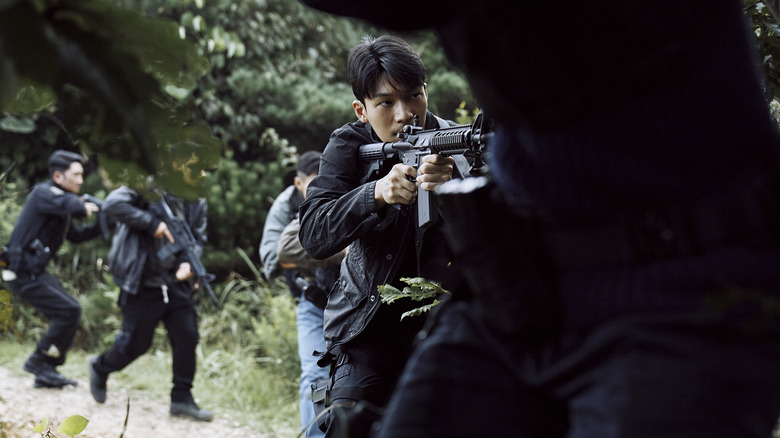
For three decades, it has been a mystery in South Korea that thousands of people have disappeared, a fact that Jun-ho learns about his brother winning a previous competition in Season 1. Additionally, the location where these games take place remains unknown, despite the colossal size of the structures involved. Although aerial shots suggest the competition occurs on an island, no one has been able to pinpoint its exact location or question the large warehouses they see.
Beyond that point, it is crucial that the island lies close to South Korea, given most of the players are South Korean. This becomes incredibly perplexing when Jun-ho exhausts Season 2 in a futile quest for the island, making the entire endeavor seem utterly ridiculous. One wonders how, with their resources and skills, could Jun-ho and his associates fail to spot the island even from a distance? The question also arises: how did the wealthy masterminds behind these games locate this island, construct an enormous facility without raising suspicion or alerting authorities? It all seems highly implausible.
How did Thanos smuggle drugs into the game? (Season 2)
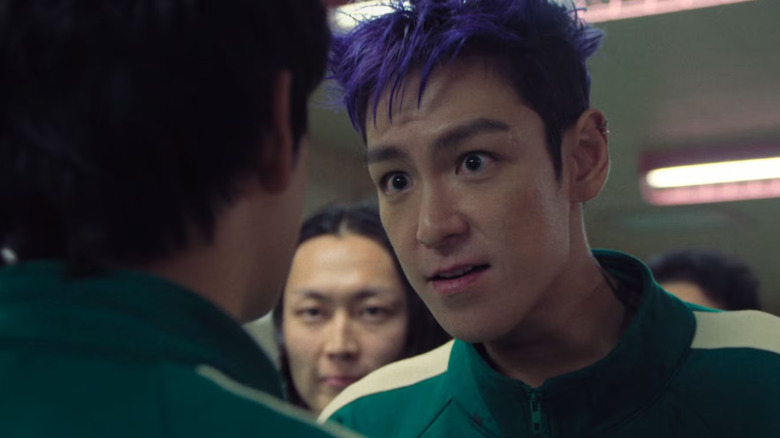
In Season 2, Gi-hun returns to the games, seemingly with the aim of sabotaging them from within. He encounters an array of fresh characters, including one named Thanos, who is a renowned South Korean rapper in real life (portrayed by Choi Seung-hyun, better known as T.O.P.). To put it frankly, Thanos can be quite irritating, yet he harbors a significant secret. In the initial round of Red Light, Green Light, Thanos confides to another player and ally that his large cross pendant functions as a concealed storage, and he’s been stashing drugs inside it.
In the same game where Gi-hun finds out his tracking device hidden in a false tooth has been taken away, leaving him stranded with no help, it’s hard to believe that the guards who were preparing the players by redressing them, taking their belongings, and so on would fail to notice a necklace concealing a large amount of drugs. It seems highly improbable!
The second game of Red Light, Green Light proves Gi-hun should have died the first time he played (Season 2)
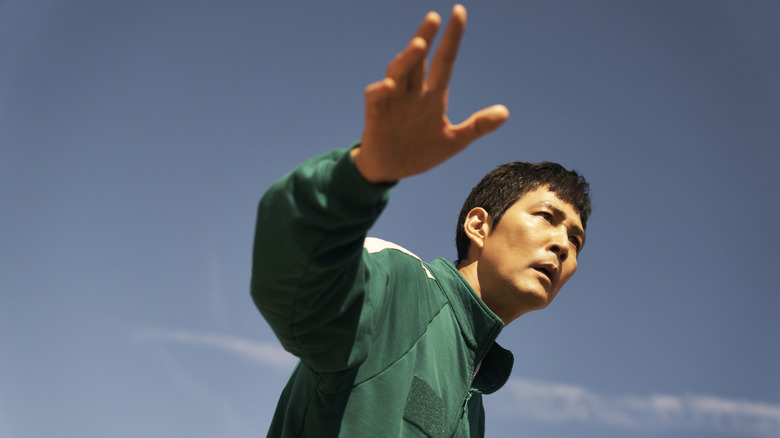
Let me take you back briefly to the Red Light, Green Light scenario – during Gi-hun’s second competition, it’s clear that the motion sensors in the giant robot doll’s eyes are surprisingly sensitive. In Season 1, there was an instance where Gi-hun narrowly escaped Young-hee’s observation thanks to Ali Abdul, one of his competitors and future friend. In a remarkable move, Ali hoisted Gi-hun above the ground with his jacket, preventing him from falling and being “eliminated,” which in this game means getting shot and killed.
In the second season of Red Light, Green Light, the game’s triggers have noticeably improved, leading to a high number of players being eliminated while attempting to remain stationary. Although it appears that the game creators made this version more challenging, the protagonist, Gi-hun, seems unusually mobile and manages to avoid getting shot, which might suggest the use of plot armor. However, this inconsistency in the rules also creates a plot hole.
Gi-hun’s revolution plan comes together way too easily (Season 2)
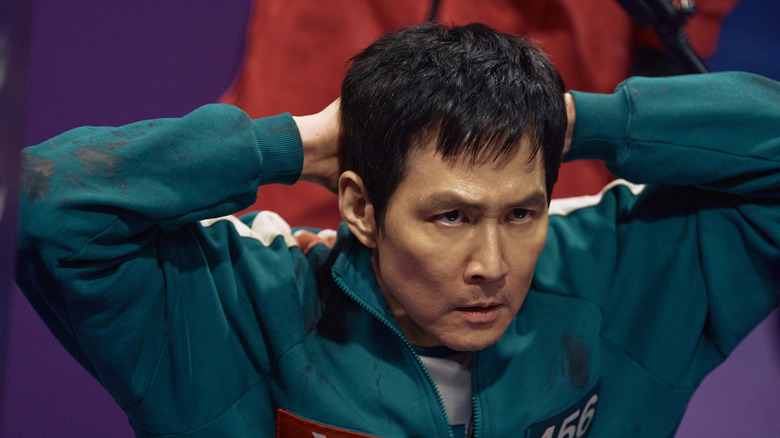
At the climax of Season 2 of “Squid Game,” Gi-hun, disillusioned with the brutal nature of the competition once again, mobilizes his fellow contestants to revolt against the guards. The authorities controlling the game, including the Front Man, orchestrate power outages in the dormitory where all players reside, leading to violent altercations and participants attacking each other; Gi-hun proposes that he and a band of fighters use these disturbances as cover to ambush the unaware guards when they arrive to tidy up. Initially, this scheme proves effective, particularly since In-ho is part of Gi-hun’s team yet secretly works against him as the Front Man; however, before the season concludes, Gi-hun finds himself captured by additional guards.
In this scenario, Gi-hun proposes a plan that his associates concur with, and then surprisingly, everything just seems to fall into place. This seemingly effortless deception works flawlessly, which might not be realistic, but it helps advance the storyline effectively. However, considering the complexity of such a plot twist, it’s hard to believe that it would have been so easily executed in reality.
Why doesn’t Jun-ho just tell Gi-hun the Front Man is his brother? (Season 2)
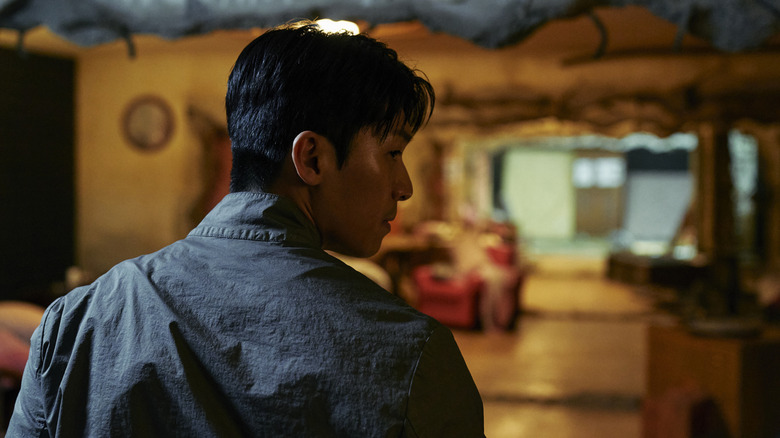
At the start of Squid Game’s second season, individuals who have not previously interacted – In-ho and Gi-hun – encounter each other. Initially harboring suspicions towards one another, they eventually forge an alliance to outsmart the games together. Throughout the series, Jun-ho is responsible for the failed tooth implant containing a tracker in Gi-hun’s mouth, and he dedicates himself to locating Gi-hun and revealing the existence of these deadly contests to the public. However, when they finally meet, Jun-ho conceals a crucial truth from Gi-hun – his brother In-ho is none other than the Front Man.
If Jun-ho genuinely aimed to dismantle the games, he would have revealed this secret to Gi-hun and perhaps shown him a photo of the man involved; doing so would have immediately exposed In-ho’s disguise as Player 001 when Gi-hun recognized his face in the game. However, many might argue that Jun-ho’s reluctance to do so is due to his lingering concern for his brother, but it seems rather suspicious.
“Squid Game” is available to stream on Netflix now.
Read More
- 10 Most Anticipated Anime of 2025
- Gold Rate Forecast
- Pi Network (PI) Price Prediction for 2025
- USD CNY PREDICTION
- USD MXN PREDICTION
- USD JPY PREDICTION
- Silver Rate Forecast
- EUR CNY PREDICTION
- Brent Oil Forecast
- Castle Duels tier list – Best Legendary and Epic cards
2025-01-11 01:00